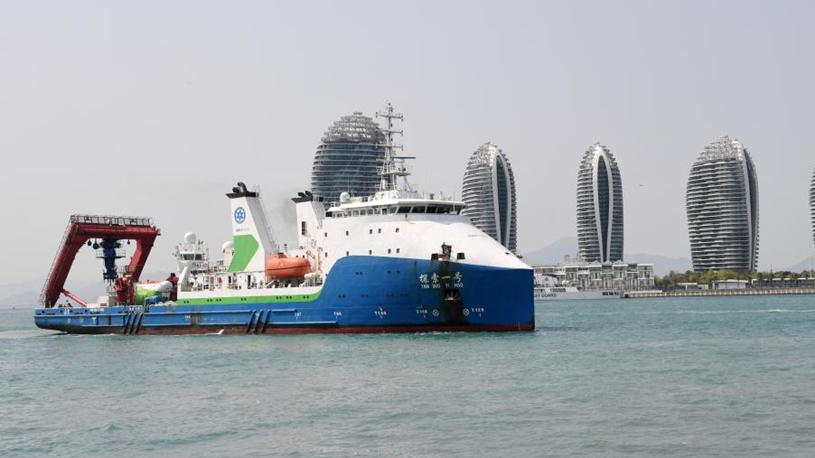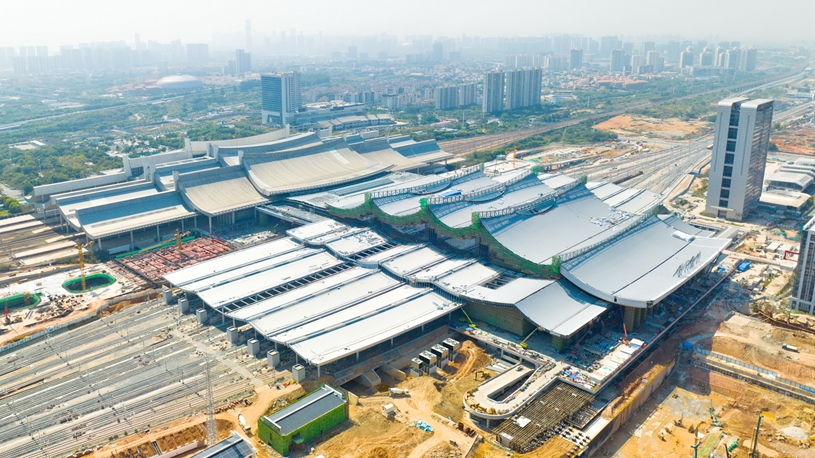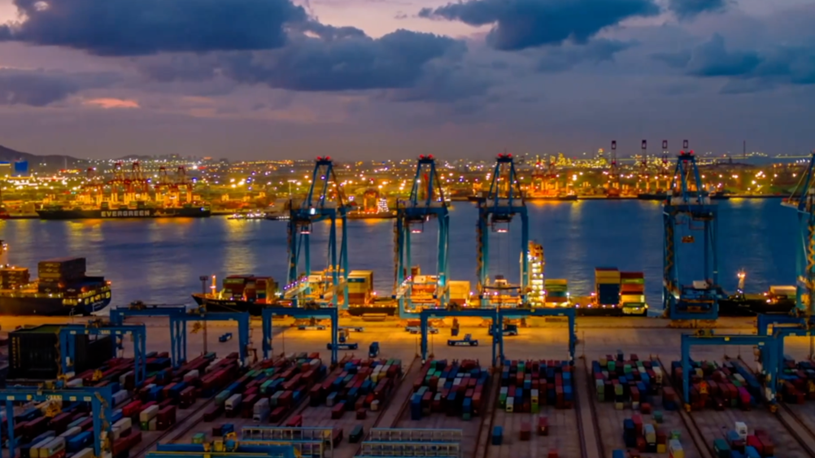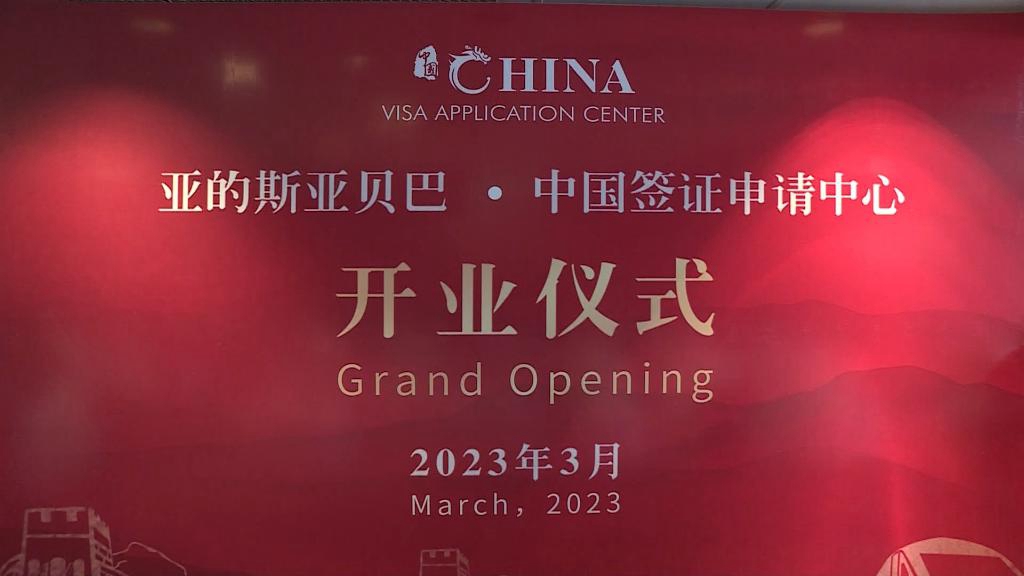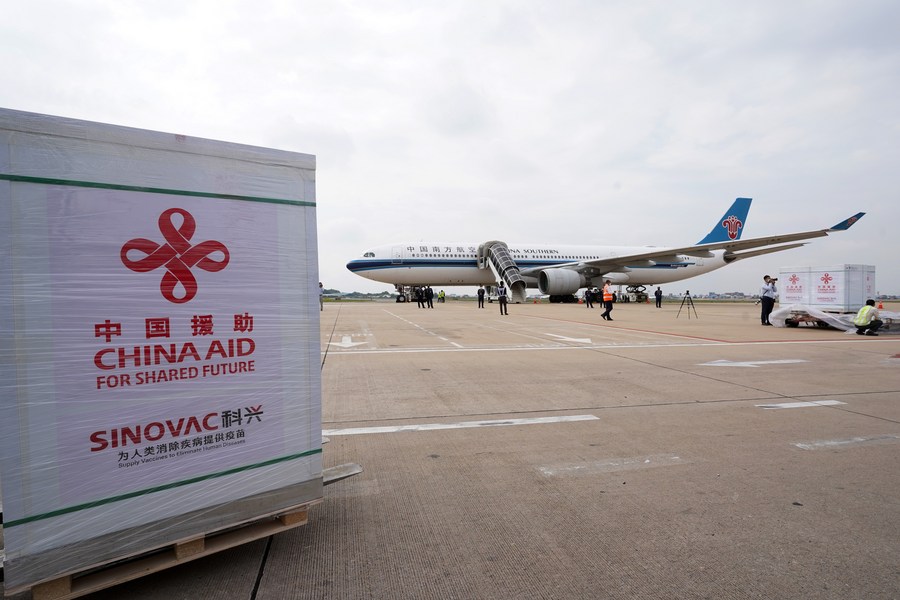
Photo taken on March 29, 2022 shows packages of Sinovac COVID-19 vaccine at the Phnom Penh International Airport in Phnom Penh, Cambodia. (Photo by Ly Lay/Xinhua)
International investment banks and financial institutions generally believe that China will continue to be the "engine" and "stabilizer" driving the recovery of the world economy.
BEIJING, March 14 (Xinhua) -- The world community recently marked three years since the World Health Organization (WHO) called the COVID-19 outbreak a pandemic.
Global observers said that over the years China, from saving lives to minimizing the impact on people's daily life, has succeeded in balancing the fight against COVID-19 with economic and social development, enabling the country to continue serving as an engine for the global economy.
By assisting other countries in fighting the pandemic and calling for concerted efforts to build a global community of health for all, China has also made significant contributions to global health governance, they said.
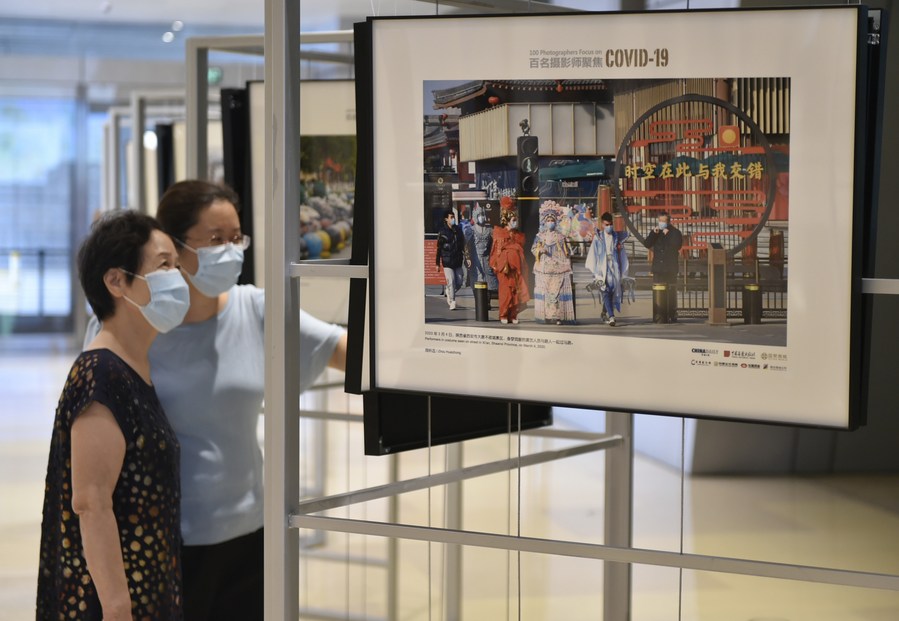
Visitors view an exhibition titled "100 Photographers Focus on COVID-19", which displays 80 images taken by top Chinese photographers during the COVID-19 pandemic, at China World Mall in Beijing, capital of China, Aug. 1, 2020. (Xinhua/Lu Peng)
PEOPLE-CENTERED PHILOSOPHY
China has succeeded in fighting COVID-19, said Magdy al-Dahshan, former vice dean of the Faculty of Medicine of Egypt's Al-Azhar University. "The huge population of China was a challenge, but China has taken strong and precautionary measures in order to protect its people."
According to data released by the WHO, as of March 1, there are more than 758 million confirmed cases and more than 6.85 million COVID-related deaths in the world. China is among the countries with the lowest rates of severe illness and mortality.
Over the past three years, China has been adjusting its epidemic response in light of the evolving situation. It has also invested heavily to expand its treatment capacity and ensure medical supplies in the country's less-developed rural areas. Hospitals spared no effort in treating the elderly and other vulnerable people.
Beyond its border, China has supplied aid to other countries and shared its experience in battling the coronavirus. So far, it has provided anti-pandemic supplies to 153 countries and 15 international organizations and co-hosted more than 300 exchange activities on epidemic prevention and control and medical treatment with over 180 countries and regions and more than 10 international institutions.
"The Chinese government has been extremely consistent with its people-centered principle in its fight against COVID-19. Its main goal has been to preserve every life," said Eduardo Regalado, a researcher at the International Policy Research Center of Cuba.
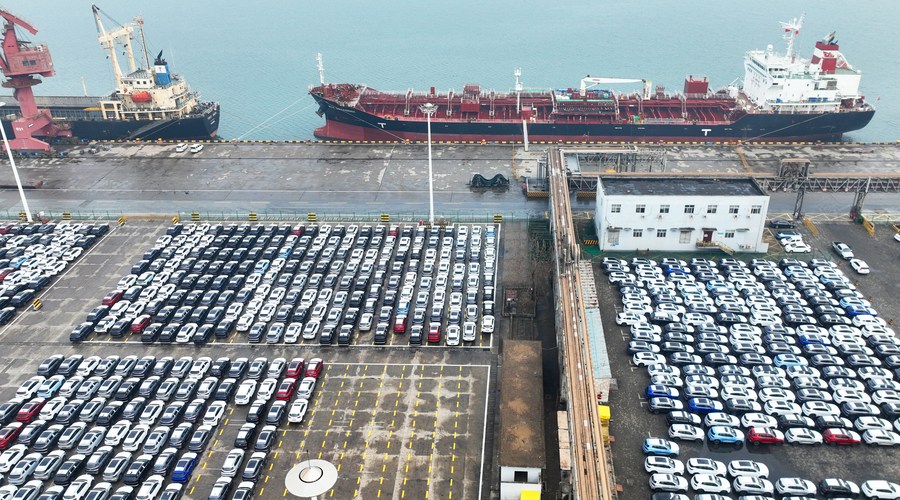
This aerial photo shows vehicles waiting to be exported at a port in Lianyungang, east China's Jiangsu Province, Jan. 13, 2023. (Photo by Geng Yuhe/Xinhua)
A BOOSTER TO WORLD ECONOMY
In the last three years, China has effectively coordinated epidemic response with economic and social development, with an average economic growth of 4.5 percent from 2020 to 2022, outpacing the world average of around 2 percent. It has reinforced its status as an engine for the global economy.
According to a survey by the China Council for the Promotion of International Trade, 99.4 percent of foreign enterprises surveyed are confident about China's economic prospects in 2023.
"Growth in China is projected to rise to 5.2 percent in 2023, reflecting improving mobility," the International Monetary Fund said in an update to its World Economic Outlook report.
Despite the pandemic, China's GDP reached a record high of 121 trillion yuan (17.5 trillion U.S. dollars) in 2022 after the country broke the thresholds of 100 trillion yuan in 2020 and 110 trillion yuan in 2021, according to official data.
Khairy Tourk, professor of economics with the Stuart School of Business at the Illinois Institute of Technology in Chicago, hailed China's COVID-19 policies which have saved millions of lives as a significant factor behind the revival of the Chinese economy.
"You have healthy workers coming back to work in factories, healthy environment. The COVID-19 policies were the best proof that it is good to have short-term pain for long-term gain," he said.
Meanwhile, international investment banks and financial institutions generally believe that China will continue to be the "engine" and "stabilizer" driving the recovery of the world economy.
According to the General Administration of Customs, China's total goods trade reached a record 42.07 trillion yuan (6.2 trillion dollars) in 2022, up 7.7 percent year on year, topping the world for six consecutive years. Exports rose 10.5 percent to 23.97 trillion yuan (3.5 trillion dollars), and imports rose 4.3 percent to 18.1 trillion yuan (2.6 trillion dollars).
Describing China as one of the largest driving forces of the global economy, Russian Finance Minister Anton Siluanov said that after optimizing the COVID-19 policy, China will help resist the global economic downturn with its rapid development.
China's contributions were reflected in its stable production and robust exports that had supported a global economic recovery on the supply side and through sound macroeconomic policies conducive to the country's steady economic growth and the world, said Liang Guoyong, a senior economist of the United Nations Conference on Trade and Development.
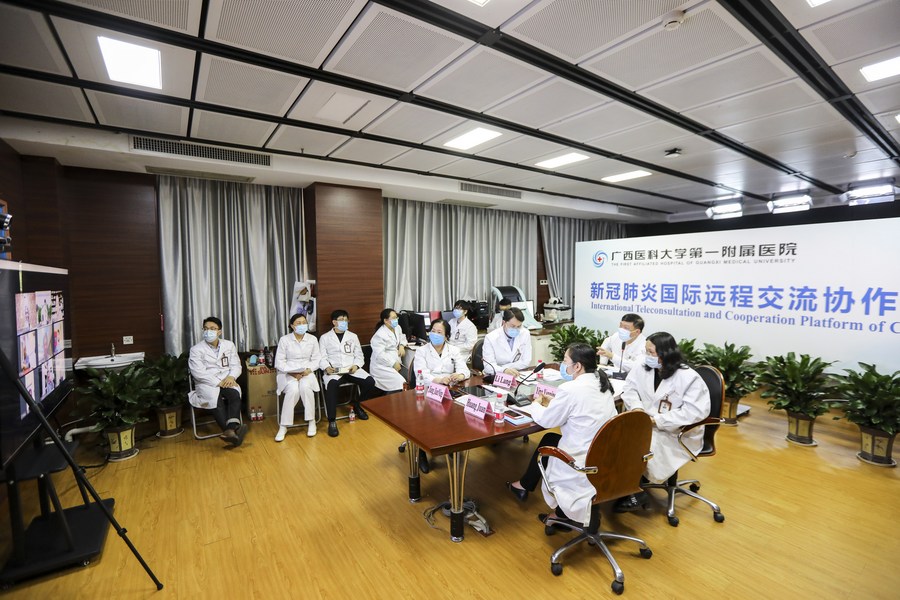
Experts from the First Affiliated Hospital of Guangxi Medical University attend a video conference with medical staff in Nepal to share experience in combating the COVID-19 in Nanning City, south China's Guangxi Zhuang Autonomous Region, April 13, 2020. (Xinhua/Cao Yiming)
FOR GLOBAL HEALTH, WELFARE
In a phone conversation with Ma Xiaowei, director of China's National Health Commission in mid-January, WHO Director-General Tedros Adhanom Ghebreyesus commended China's efforts to cope with COVID-19 and thanked China for maintaining long-term technical exchanges and sharing epidemiological information and data with the WHO.
The two sides agreed to continue to strengthen technical exchanges and cooperation on epidemiological response and work together to protect global health security.
Since the onset of the pandemic, China has been calling for solidarity with the international community. The country has firmly advanced international cooperation against COVID-19, calling for building a global community of health for all.
In the past three years, China has been sharing COVID-19 information with the WHO and countries across the world. China was the first to identify the pathogen and publicize key information including the genome sequencing of the virus. It also set up a technical exchange mechanism with the WHO.
China is also the first country to propose COVID-19 vaccines as a global public good, support vaccine intellectual property rights exemption, and champion cooperation on vaccine production with developing countries, which has injected strong impetus into bridging the global immunization gap.
During the pandemic, vaccine inequity jeopardized global efforts in fighting the virus, said Romina Sudack, a member of the Study Group on China and Argentina of the National University of Rosario.
However, China has provided millions of doses of vaccines to other countries, which have been the most readily available vaccines for people in developing nations, she said, stressing that China has been implementing the vision of a community with a shared future for mankind with concrete actions.
"I have been impressed by China's active participation in promoting global health with a shared future. Chinese leadership under President Xi Jinping has focused on pursuing the greater good and shared interests across the world, which has boosted China's efforts in maintaining good cooperation in global health," said Emery Nzirabatinya, a Rwandan international relations expert. ■

